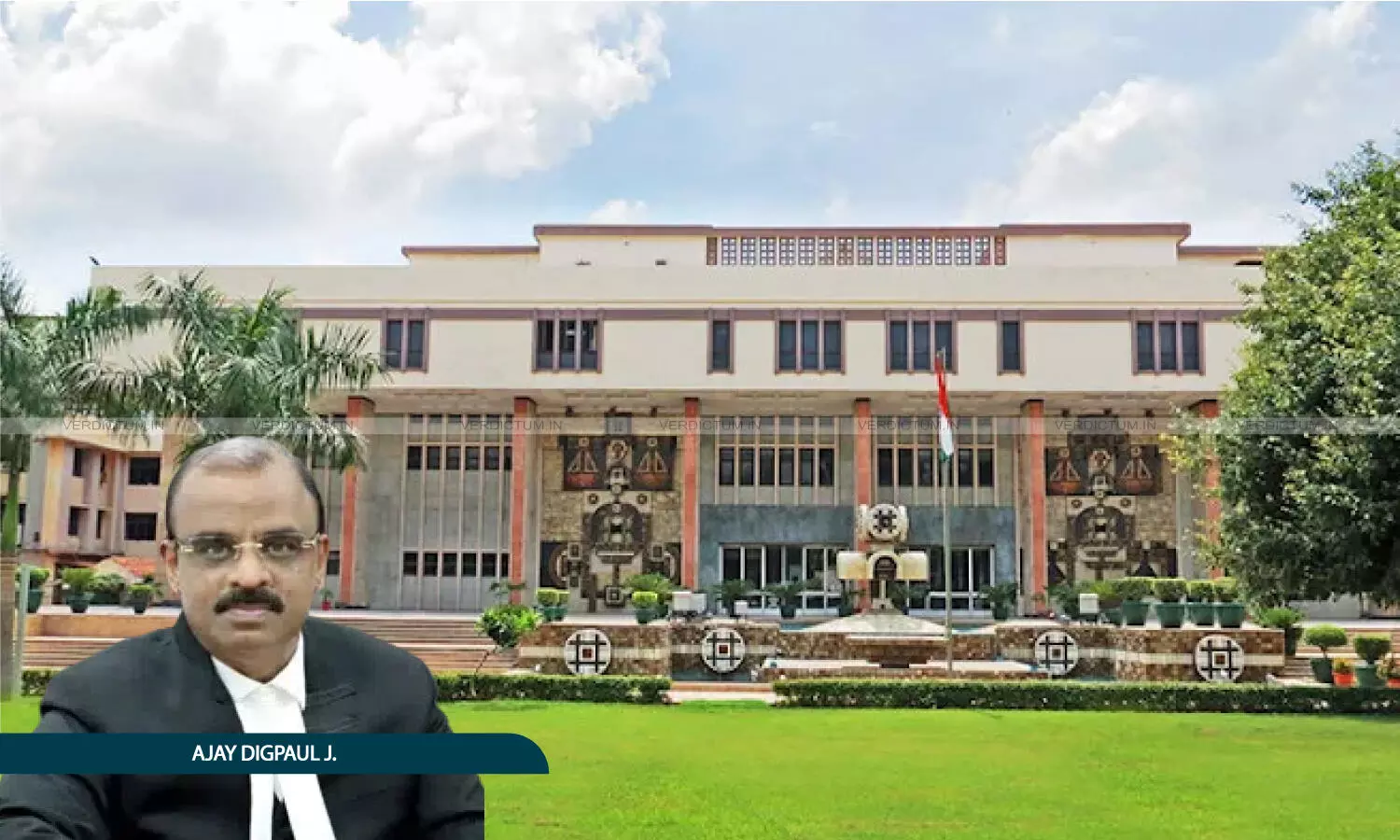
Delhi High Court, Justice Ajay Digpaul
Section 50 NDPS Act Applies Only To Personal Searches & Not Premises Of The Accused: Delhi High Court
 |
|The Court clarified that compliance with Section 50 of the NDPS Act is required only when an accused is personally searched and does not extend to searches conducted at her premises.
The Delhi High Court has held that the safeguards under Section 50 of the Narcotic Drugs and Psychotropic Substances Act, 1985 (NDPS Act) apply only when a personal search of an accused is conducted and not where the recovery is made from residential or other premises.
The Court dismissed the bail plea of the petitioner, observing that the recovery of 30 grams of heroin from her house was not vitiated on account of alleged non-compliance with Section 50.
A Single Bench of Justice Ajay Digpaul, rejecting the bail application, remarked,“Section 50 applies only in the case of search of the person of a suspect, pursuant to the apprehension of recovery of narcotics under the NDPS Act, and not to the search of premises.”
Mr. Arvind Vats appeared for the petitioner, while Ms. Meenakshi Dahiya, APP, represented the State.
Background
The matter arose from a bail application filed under Section 483 of the Bharatiya Nagarik Suraksha Sanhita, 2023, seeking regular bail in a case registered under Sections 21, 25, and 29 of the NDPS Act. The case pertained to the alleged trafficking of heroin and was heard by the Delhi High Court after the Special Judge, NDPS, Rohini Courts rejected the petitioner’s earlier bail pleas.
An FIR was registered under Sections 21, 25, and 29 of the NDPS Act after specific intelligence was received regarding the transportation of heroin by two individuals via an e-rickshaw. A raiding team intercepted the vehicle, recovering 300 grams of heroin from the co-accused.
The petitioner was neither present during the recovery nor named in the FIR. Her alleged involvement surfaced later during the investigation based on the disclosure statement of the co-accused and Call Detail Records (CDRs) showing repeated communication between the two.
Acting on this information, the police obtained prior permission under Section 42 NDPS Act to search the petitioner’s premises, resulting in the recovery of 30 grams of heroin. Consequently, the petitioner was arrested and has remained in judicial custody since then.
Court’s Observations
The Court examined the petitioner’s contention that the search was illegal due to non-compliance with Sections 42 and 50 of the NDPS Act. It noted that prior intimation under Section 42 had been duly recorded before the search, thereby establishing compliance.
With respect to Section 50, the petitioner had argued that the mandatory safeguards provided under the provision were completely ignored. It was contended that she was never informed of her legal right to have the search conducted in the presence of a Magistrate or Gazetted Officer, as required under law.
The counsel for the petitioner further argued that the failure to serve a proper notice vitiated the entire search and recovery process, rendering the evidence inadmissible. Claiming that the personal search was carried out by a woman head constable, who, according to her, was not an “empowered officer” under the NDPS Act, the petitioner argued it violated the mandate of Sections 41 and 42.
Relying on judgments including Emeka Emmanuel v. State and Mohd. Rahis Khan v. State, the defence contended that strict adherence to Section 50 was essential and any deviation was fatal to the prosecution’s case.
However, on the applicability of Section 50, the Court referred to the Constitution Bench decision in Baldev Singh and the rulings in Vijaysinh Chandubha Jadeja v. State of Gujarat and State of Kerala v. Prabhu, observing:
“The protection under Section 50 requiring the suspect to be informed of their right to be searched before a Magistrate or Gazetted Officer applies only when the contraband is recovered from the person of the accused, not when the recovery is from premises or bags.”
The Court distinguished the precedents cited by the petitioner, such as Emeka Emmanuel v. State and Mohd. Rahis Khan v. State, as those cases involved personal searches. Since the recovery of 30 grams of heroin was made from the petitioner’s residence and not her person, the Court held that the plea regarding Section 50 was without merit.
Additionally, the Court noted that the petitioner’s name surfaced from the co-accused’s disclosure, corroborated by 56 recorded phone calls between her and the co-accused, indicating an active role in the procurement and transportation of narcotics.
Conclusion
In light of the evidence and seriousness of allegations, the Court dismissed the bail application, holding that the recovery remained unaffected by the alleged non-compliance with Section 50 NDPS Act:
“The recovery of 30 grams of heroin from the premises of the petitioner is unaffected by the alleged non-compliance of Section 50 of the NDPS Act. The bail application, therefore, stands dismissed.”
Accordingly, the bail application was dismissed.
Cause Title: Shahida v. The State NCT of Delhi Neutral Citation: BAIL APPLN. 180/2025
Appearances:
For Petitioner: Mr. Arvind Vats, Ms. Yashika, Advocates
For Respondent: Ms. Meenakshi Dahiya, APP for State